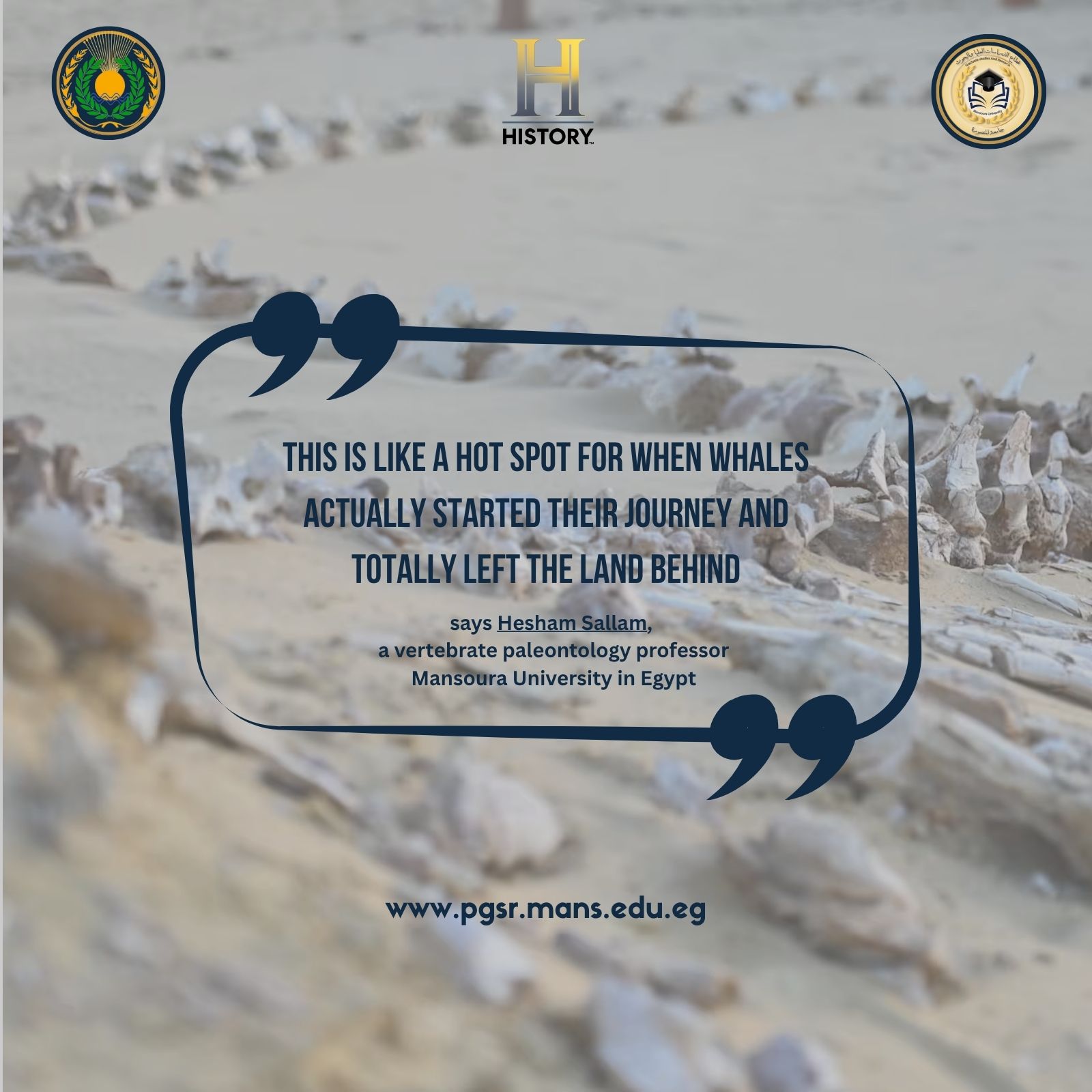The global HISTORY platform has published a feature on the pioneering work of Mansoura University’s Vertebrate Paleontology Center in Wadi Al‑Hitan (“Whale Valley”), a UNESCO World Heritage site in Egypt’s Faiyum Desert. Wadi Al‑Hitan contains fossils of ancient whales that once walked on land. Over millions of years, these creatures evolved from amphibious mammals with hind legs into the fully aquatic giants we know today.
The article emphasizes Mansoura University’s significant contributions to understanding this transition. In 2021, the team described Phiomicetus anubis, a four-legged whale from the Eocene epoch (around 43 million years ago). The species was named after the Fayum Depression and the ancient Egyptian god Anubis and is considered a critical discovery for Egyptian and African paleontology. Researchers estimate the animal was about 10 feet long, weighed roughly 1,320 pounds and would have been a top predator in its environment.
In 2023, the same group reported Tutcetus rayanensis, the smallest and one of the oldest members of the basilosaurid family. This fossil, dated to about 41 million years old, illustrates a stage when whales were becoming fully aquatic. Together, these discoveries showcase how early whales moved from land to sea and underline Mansoura University’s growing role in global paleontological research.
 English
English  اللغة العربية
اللغة العربية 







